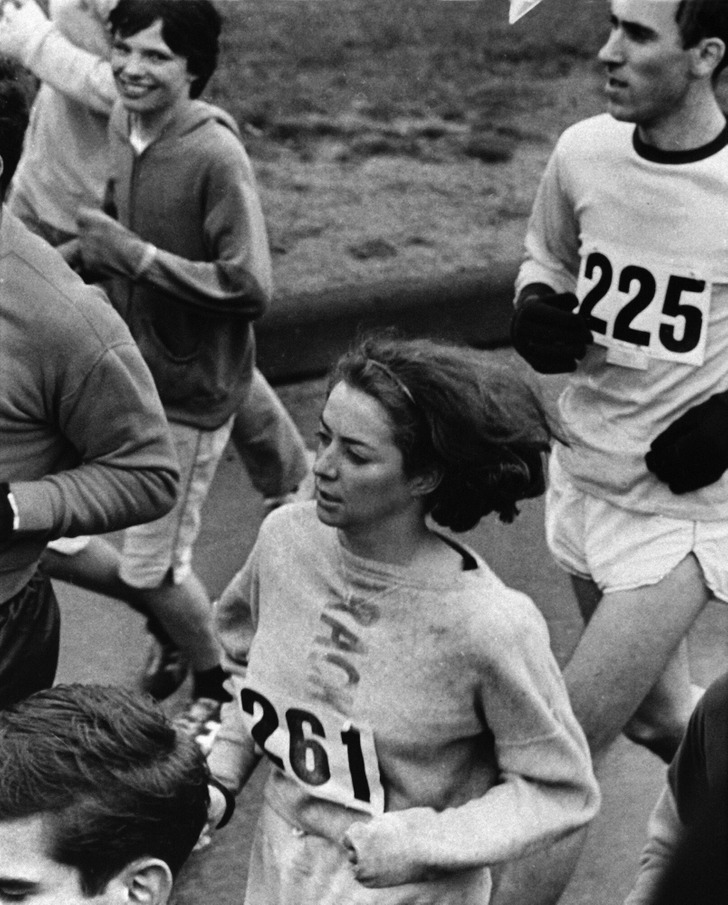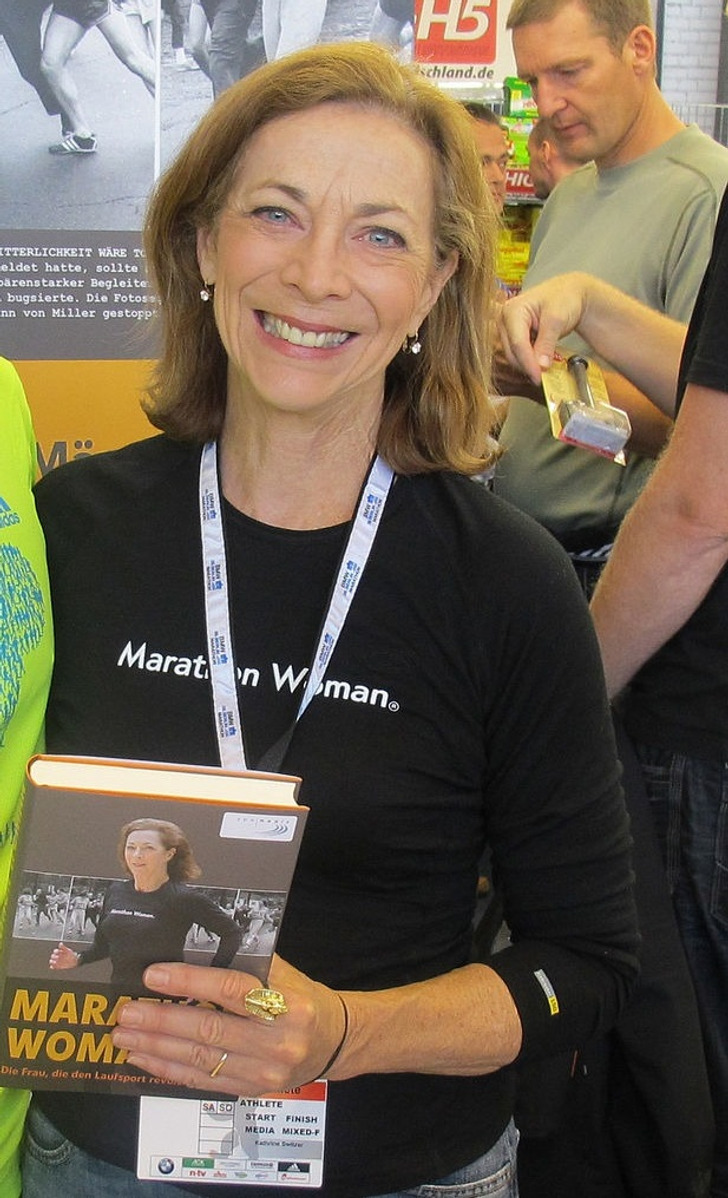The Story of Kathrine Switzer, Who men Tried to Stop From Running a Marathon, but She Didn’t Give Up, and Changed the Course of History
Today, it’s hard to imagine that women once couldn’t run a marathon alongside men. But Kathrine Switzer helped change that. Thanks to her, women were officially allowed to participate in the Boston Marathon in 1972. Kathrine’s courage and willingness to run helped in the fight for gender equality at sporting events.
Here at CHEERY, we’ve decided to tell the story of Kathrine Switzer, the pioneer of women’s marathon running, who was able to change the course of history for many female athletes.

Kathrine started running a mile a day when she was 12 years old. As a 19-year-old journalism student at Syracuse University, she trained, unofficially, with the men’s cross-country team, because a women’s one simply didn’t exist. That’s when she met her coach, 50-year-old Arnie.
He was thrilled to see a woman out for a run and took Kathrine under his wing. They began training, and much of their conversation revolved around the Boston Marathon. Arnie argued, that such a distance (26.2 miles) was just too long for a fragile female form: “No woman can run the Boston Marathon”. But Kathrine disagreed: “Why not? I’m running 10 miles a night”.

From that moment on, preparations for the race began. Three weeks ahead of the 1967 Boston Marathon, Kathrine ran a 26-mile trial run with her coach. The next day Arnie came to her dormitory and insisted that she sign up for the race. “We checked the rule book and entry form; there was nothing about gender in the marathon,” Katherine recounted.
A year earlier, Bobbi Gibb ran the Boston Marathon, but she hadn’t registered and had no race number. In fact, she hid in the bushes at the start of the race. So, upon registration, Kathrine signed her name as “K.V. Switzer”, which prevented anyone from realizing that a woman was participating in the race. Kathrine’s boyfriend, Tom Miller, decided to form part of her marathon team, along with other known athletes of the time.

The time had come for the big day. Just before the Boston Marathon, Kathrine’s boyfriend noticed that she was wearing lipstick. She had no intention of hiding her femininity: “I always wear lipstick”. When the other athletes saw Kathrine on the track, they started smiling and saying things like “Hey! You gonna go the whole way?”, “Gosh, it’s great to see a girl here!”, “Can you give me some tips to get my wife to run? She’d love it if I can just get her started.”
Race director Jock Semple also noticed Kathrine, and he didn’t like it. He immediately rushed towards her, tried to pull her off the track, and tear the number off her chest. All the while, the press was filming the incident. Kathrine was defended by her boyfriend, who was running beside her, and her coach. Kathrine Switzer finished the marathon with a time of 4 hours and 20 minutes.
Photos of the marathon spread worldwide and sparked a lot of speculation. Kathrine felt, that this race would change her life forever: “I’ve stepped into a different life, I thought. To the guys, it was a one-off event. But I knew it was a lot more than that. A lot more.” She continued to train, run, and advocate for women’s rights.
In 1972, women were, finally, officially allowed to take part in the Boston Marathon. That year, in New York’s Central Park the first women’s race was held, over a distance of 6 kilometers, and in 1973 the world saw the first-ever women’s marathon race, which took place in Waldniel, West Germany. Kathrine continued to run, finishing fifth in Boston in 1974 and second in 1975, with a personal best of 2:51:37.
In 1977, Kathrine, with the help of the cosmetics company Avon, founded the Women’s Marathon, which ran annually from 1978 to 1984, and was pivotal in making the women’s race part of the 1984 Olympics.
Switzer’s activities aren’t limited to running. Kathrine is not only an athlete, she is also a social activist and a TV commentator. Switzer has also published a book, Marathon Woman. And, she was inducted into the US National Women’s Hall of Fame for creating positive social change. Her work has forever changed the perception of sport, health, and opportunity for women around the world.

Kathrine also couldn’t pass up the opportunity to take part in the anniversary race. Fifty years after her debut, in 2017, Switzer ran the Boston Marathon again, at the age of 70. She completed the distance in 4:44:31. Organisers gave her the same starting number, 261, as she had in 1967. “I was running to say thank you to a race, a city, and thousands of wonderful people who have done so much to give strength to women,” said Kathrine Switzer.
Together with her friends, Kathrine founded the non-profit organization 261® Fearless. “We are uniting to empower women around the world through the transformative vehicle of running,” the founder shared. Their first sponsor became Reebok. Talking more about her team’s ambitious plans, Kathrine said: “We are driven to give women everywhere the gift of self-esteem, empowerment, and fearlessness. And running can do that, but it’s still a big job”.
Kathrine had no idea that her participation in the 1967 marathon would have such an impact on the world: “I was just a kid who wanted to run her first marathon”. Thanks to her, women’s rights in sports have been solidified, and female athletes are now treated more fairly. She has made a huge contribution to the development of feminism. Today, every woman, if she wants to, can participate in a race and have an equal opportunity to win.
Do you do sports? Is running part of your routine?
